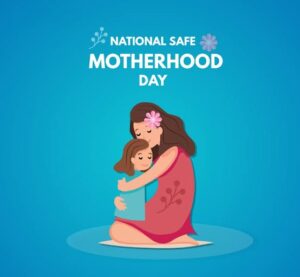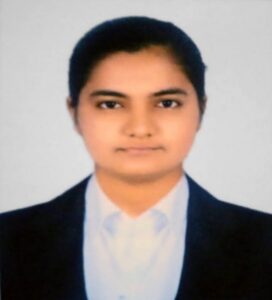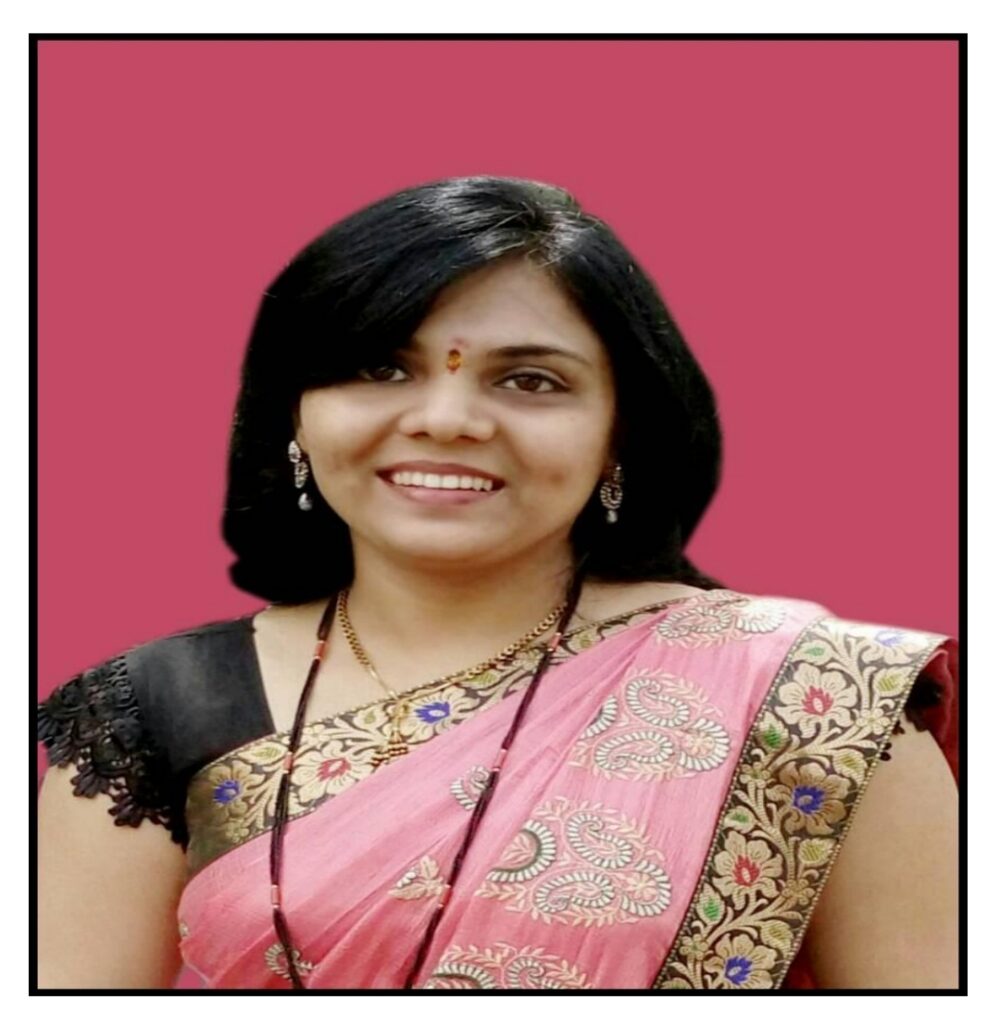
Bibi-Ka-Maqbara is located in the historical city of Chatrapati Sambhaji nagar in Maharashtra and is built in
the memory of the wife of Emperor Aurangzeb. Aurangzeb and Dilras Banu had five children and after delivering her fifth child, Dilras died. Both Aurangzeb and his eldest son, Azam Shah couldn’t bear the loss of the most important woman in their lives. It is said that
the father-son duo were grief stricken for months and it took great efforts for them to come out of the state of shock. It was then in 1668 that Azam Shah ordered for a mausoleum to be built for his beloved mother on the lines of Taj Mahal, which was the resting place of Banu’s mother-in-law and Aurangzeb’s mother, Mumtaz Mahal. Both the women died
because of complications developed through childbirth. Likewise Many Historical monuments and streets were built in the memory of Mothers to commemorate them. We also listen to the great podcasts or watch many thoughts in a day through social media, peoples make various slogan , celebrate days like mothers day , womens day for a single
day, post the quotes making one so happier and fortunate enough to have mothers in their life who work 24*7 without demanding any salary. But, has anyone ever thought of making
motherhood Safe.Yes, our great Nation INDIA for the very first time started celebrating National Safe
Motherhood Day (NSMD) which is observed on 11th April, every year, to raise awareness about the proper healthcare of women and maternity facilities to pregnant and lactating
women.The day also focuses on reducing anemia among women, institutional delivery, for better pre and post natal health care etc. which are necessary for mothers. The day is celebrated due to the initiative of the White Ribbon Alliance India (WRAI) to provide and inform women of healthcare habits and for the availability and accessibility of
various healthcare programs during pregnancy, childbirth and postnatal services. In 2003, according to the request of WRAI, the Government of India had declared 11 April as National Safe Motherhood Day which is the anniversary day of Kasturba Gandhi’s birth. She is wife of Mohan das Karam Chand Gandhi, the father of the nation. She was a social
reformer and a dedicated mother; she used to spend a majority of her time helping out and serving in ashrams , that is why she was also referred to as “Ba”meaning mother. Apart
from serving in ashrams, Gandhi also worked on the development of women in Champaran Bihar, in 1971 and educated them in hygiene, discipline, health, reading and writing. India is the 1st country in the world to have socially declared a National Safe Motherhood
Day. WRA India was launched in 1999 when the Center for Catalyzing Change (formerly known as CEDPA), brought together a group of individuals and organizations to advocate for safe
motherhood in India. Their vision is an India where all women and girls realize their right to quality health and wellbeing.
Every year WRAI decides the theme of National Safe Motherhood Day.
Approximately 830 women die every day from preventable causes related to pregnancy and childbirth. In developing countries 99% maternal deaths occur. In women maternal mortality is higher, basically living in rural areas and among poorer communities. India remains one of the most high-risk places in the world to give birth, accounting for almost 12% of total maternal deaths worldwide. Annually, over 35,000 women die in India of maternal causes, despite over 80% delivering in health facilities. Almost all these deaths are preventable, suggesting that quality of care needs attention at multiple levels. India has seen progress around maternal health in recent years but the rush to bring women to facilities has grown without investing enough on the experience they have once they are
there. As compared to women, young adolescents face a higher risk of complications and death as a result of pregnancy. The fact that skilled care before, during and after childbirth can save the lives of women and newborn babies, can not be ignored. The maternal mortality worldwide dropped by about 44% between 1990 and 2015. As part of the Sustainable Development Goals in between 2016 and 2030, the target is to
reduce the global maternal mortality ratio to less than 70 per 100000 live births. Therefore,
to raise awareness about healthcare for women National Safe Motherhood Day is
celebrated every year.
To reduce needless deaths in pregnancy and childbirth, WRA India is working with
communities to demand their rights to Respectful Maternity Care (RMC) and ensuring health
systems are equipped to be supportive of health workers to provide RMC as standard
practice.
Science is also helping a lot for the infertile couples to bear children such as IVF, surrogacy
. The national safe motherhood day generates awareness about the need for medical
check up health support and government initiative needed to ensure safe motherhood.
National safe motherhood day is also An opportunity to demand better health care facilities
from the government for pregnant and lactating women.
Lactation is the other most important stage of motherhood.
Breastfeeding creates a
bonding experience between mother and child because it promotes skin to skin contact
more holding and stroking. Breastfeeding has health benefits for both babies and mothers.
Breast milk provides a baby with ideal nutrition and supports growth and development.
Breastfeeding can also help protect babies and mom
against certain illnesses and
diseases. Breast milk shares antibodies from the mother with her baby. It can also protect
babies against some short and long term illness and diseases , also breastfeeding and
reduce the mother’s risk of breast and ovarian cancer,Type II Diabetes and high blood
pressure, and hence mothers can breastfeed anytime and anywhere . A survey had
reported that only 6% mothers in India are okay with public breastfeeding places, the most
awkward places are a broom closet room in an airport, under a tree, Bank queues, a bench
in a mall , or bus stop. Around 81% mothers are not comfortable feeding their children in public due to lack of proper breastfeeding places .The greatest deterrents are hygiene and
uncomfortable stares and lack of privacy. Like the way we have washrooms , rest rooms at
every public place, more breastfeeding areas should also be made available for lactating
mothers than now.
WRAI annually conducts several programs based on specific themes. On this special day
the organization set up champions in various parts of the nation to raise awareness about
healthcare and maternity for pregnant and lactating mothers. These Campions focus on
women’s rights to life and ensure that they do not use their life during pregnancy and
childbirth due to lack of proper care .Every woman has the right to receive high quality
nutrition and appropriate treatment throughout pregnancy and childbirth. Although the
government is making efforts to lower the rate of maternal mortality , it is our responsibility
to ensure that women have access to healthcare and the necessary education.
Earlier the facilities, availability , accessibility and affordability of healthcare facilities were
not there but now the government has launched many schemes to avail proper care to
mothers and contribute to safe motherhood.
So on this Day Let us have brief information about various National Health Programmes
initiated by the Government of India. The Government of India has adopted many National
health programs for women health and development such as :
1)
Reproductive, Maternal, Newborn ,child and adolescent
health(RMNCH+A)
programme.
2)
Janani Shishu Suraksha karyakaram (JSSK)
3)
Rashtriya Bal Swasthya Karyakaram (RBSK)
4)
Rashtriya Kishor Swasthya karykaram (RKSK) etc.
5)
Mother Baby Package by WHO.
Reproductive, Maternal, Newborn ,child and adolescent
health(RMNCH+A)
programme-
the reproductive and child Health program (RCH) was launched
throughout the country on October 15 1997. In 2013 this program expanded to include
maternal newborn and adolescent health as well it aims to reduce the rate of maternal
newborn and child mortality the main features include improvement of reproductive and
newborn health promotion of family planning, HIV, gender ,and preconception and prenatal
diagnostic techniques.
Janani Shishu Suraksha karyakram (JSSK)- This scheme motivates expecting mother to opt for institutional delivery, through which they can avail several protective facilities before
and after the birth of the baby. It is completely free and for all pregnant women. It eliminated
the out of- pocket expenses being incurred by pregnant women and their families in case of
institutional delivery in the forms of drugs, user charges ,diagnostic test ,for C section ,diet
up to 3 days during normal delivery and up to 7 days for C- section transport from home to
institution and care of newborns in Government health institution in both rural and urban
areas
Rashtriya Bal Swasthya Karyakaram (RBSK)- the RBSK scheme is main to specifically
address nutritional deficiency and disabilities related issue in newborn babies children early
detection and management. Rashtriya Bal Swasthya Karyakaram provide care and
treatment to
children below 18 years through screening and early detection of 4D’s(
Defects, Disease, Deficiency, and Developmental Delays including disabilities).
Rashtriya Kishor Swasthya karykaram (RKSK)- the RKSK aims to enable
all
adolescence in the country to realise their full potential by making him from and responsible
decision related to their health and well been and by accessing the services and support
they need to do so the program has the following components- The adolescent friendly
health clinics(AFHCs), Weekly Iron Folic Acid Supplementation ( WIFS), peer education
programmes are being implemented for awareness building
on nutrition, sexual and
reproductive health.
Ministry of health and family welfare, Government of India has launched a new initiative
namely SUMAIV-“ Surakshit Matritva Aashwasan” with an aim to provide assured, dignified,
respectful and quality Health care at no cost and zero tolerance for denial of services
women and newborn visiting the public health facility in order to end all preventable
maternal and newborn death and morbidities and provide a positive birthing experience.
There are also various other
organizations who work for women healthcare and
development such
as Janani Suraksha Yojana, Dakshata implementation package,
Pradhan
Mantri Surakshit Matritva initiative. Preconception Health Promotion aim to
promote the health of women of reproductive age and thereby
preventing unwanted
pregnancies.
Mother Baby Package by WHO:
The initiative works with reduction in maternal and neonatal mortality with objectives to
promote family planning to reduce the incidence of unwanted and mistimed pregnancies, to
provide basic maternity care to all women, to promote, protect and support early and
exclusive breast- feeding,To reduce anemia in pregnant women, to reduce sexually transmitted diseases in pregnant women etc. the package pdf shared in links is great
informative content one can explore on WHO site.
It is correctly said that nothing could be compared to a mother’s love in this world as it is the
purest form of love hence once day is not enough to celebrate motherhood and we should
make every day as special as Mothers Day to shower our love upon our mother .we should
acknowledge every little things done by our mother and yes happy safe motherhood day to
all ..
‘Mother’ is a very important character in every being and motherhood is the happiest and
most crucial part of a woman. It’s a time when another life through her enters a new world.
Isn’t it magical ? The purest definition of love – “ two heart beats in one being”. It is said that
the human body can bear only up to 45 del units of pain yet at time of giving birth a mother
feels up to 57 del units of pain . This is similar to 20 bones getting fractured at a time. This is what is called mother’s love.
Compiled by..
Shivani Girijashankar Yadav
SYDPharm
Konkan Gyanpeeth Rahul Dharkar College of Pharmacy and Research Institute, Karjat.

Mrs. Manisha Y. Chaudhari.
HOD
Konkan Gyanpeeth Rahul Dharkar College of Pharmacy and Research Institute, Karjat.


Be First to Comment